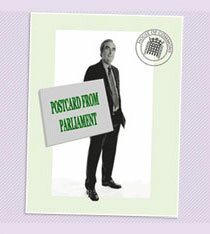Provide free school meals for more children living in poverty, says Roger
Roger is worried about the wellbeing of children in Birmingham Hall Green who are living in poverty but are not eligible for free school meals. Research by the Children’s Society found that 3,800 children in poverty are missing out on a free, nutritious meal each day, or 43% of the children in poverty in the constituency.
It was also reported last week that demand at food banks has soared across the country as families struggle to feed their children during the long summer holidays when free school meals are not available.
Not all children from poor families are entitled to free school meals. If a parent who receives working tax credit works more than 16 hours per week (or 24 hours between both parents) their children are not allowed free school meals, even if they are living in poverty and struggle to provide their children with a nutritious lunch.
Department for Education data shows that Birmingham is one of sixteen local authorities with full take-up of free school meals by those pupils who are eligible for them.
Roger says: “When children eat better, they do better in class. How can children who are hungry at school or have a poor diet reach their full potential? I am concerned that children in poverty in Birmingham are being denied a free school meal because their parents work. I am also worried that the criteria for entitlement create a perverse disincentive, penalising parents for finding work or increasing their hours.”
Although the Government plan to start rolling out Universal Credit in just two months, they have not yet decided who will be eligible for free school meals under the new system. However, they have stated that they do not plan to make free school meals available for all families receiving Universal Credit. It is expected that eligibility will be defined according to a certain income threshold.
Roger says: “I am anxious that entitlement to free school meals will not be significantly widened under universal credit, leaving some children in poverty hungry at lunchtime. I am also concerned that entitlement will be stopped completely at a certain income level, rather than tapered off.” Each child’s school meals cost around £370 per year. Unless entitlement is cut gradually rather than allowed to fall off a cliff-edge, a parent of two children on the minimum wage would have to work for an extra 120 hours, or nearly three and a half weeks, just to make up for the lost school meals.
Roger says: “Some countries, such as Sweden and Finland, provide free school meals for all children in compulsory education, not just those in poverty. Why can’t we make sure that no child goes hungry at lunchtime because their working parents can’t afford to buy them a nutritious lunch?”
The cost of extending free school meals to all children living in poverty in Birmingham would be around £1.4 million per year, a fraction of the current subsidy of more than £5m for restaurants in Parliament.
This article appeared in the August edition of Roger's newsletter 'Postcard from Parliament'


